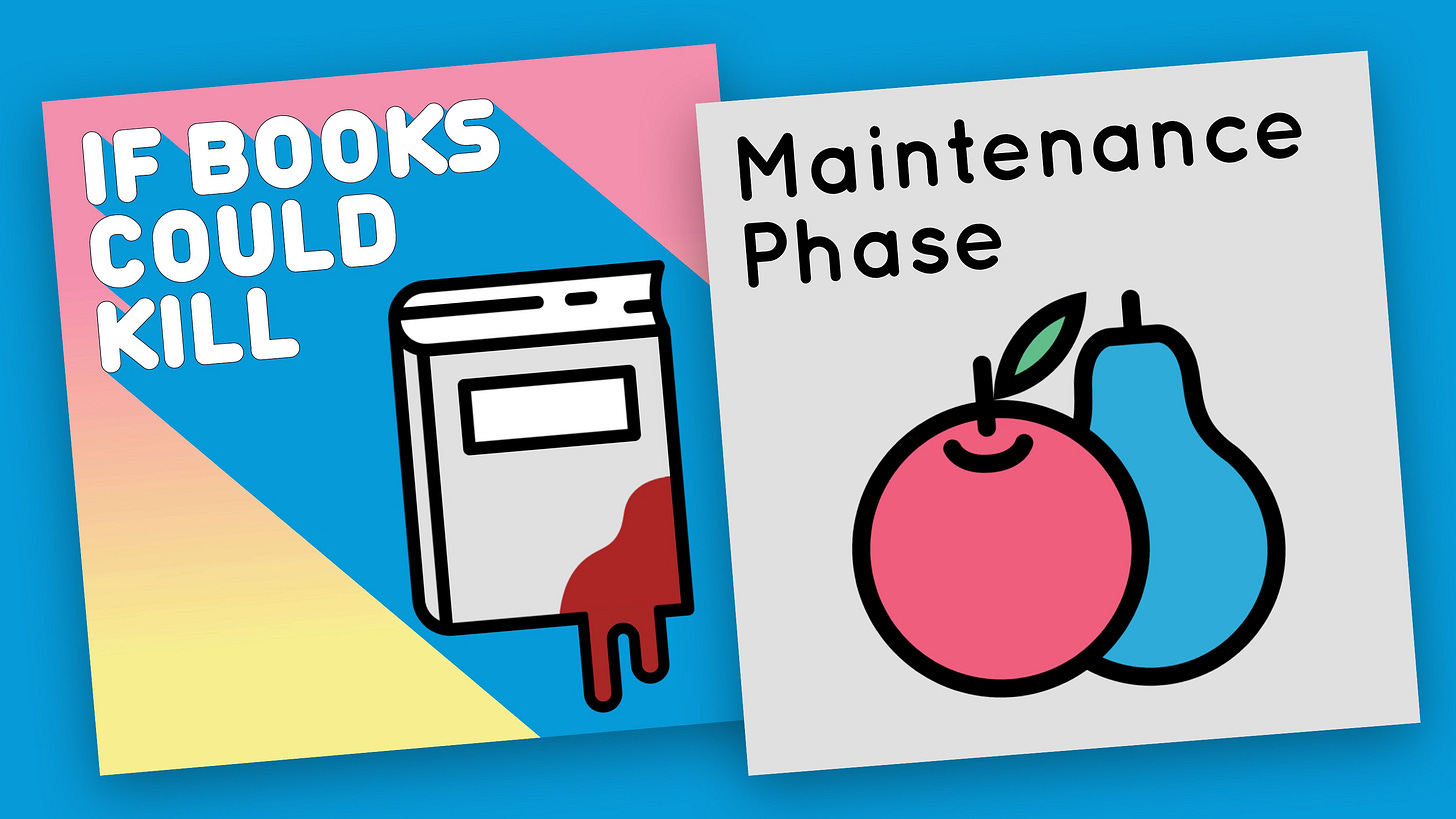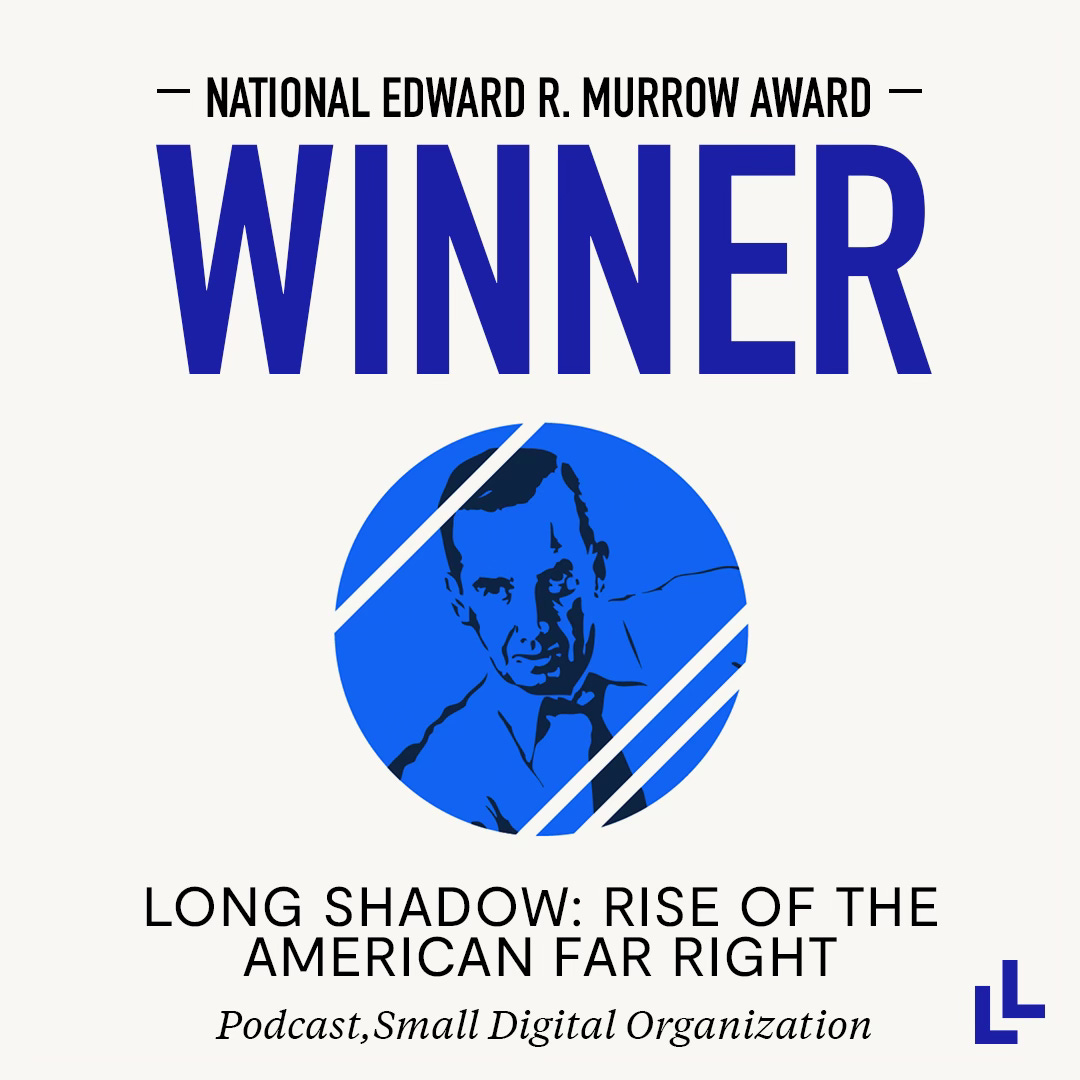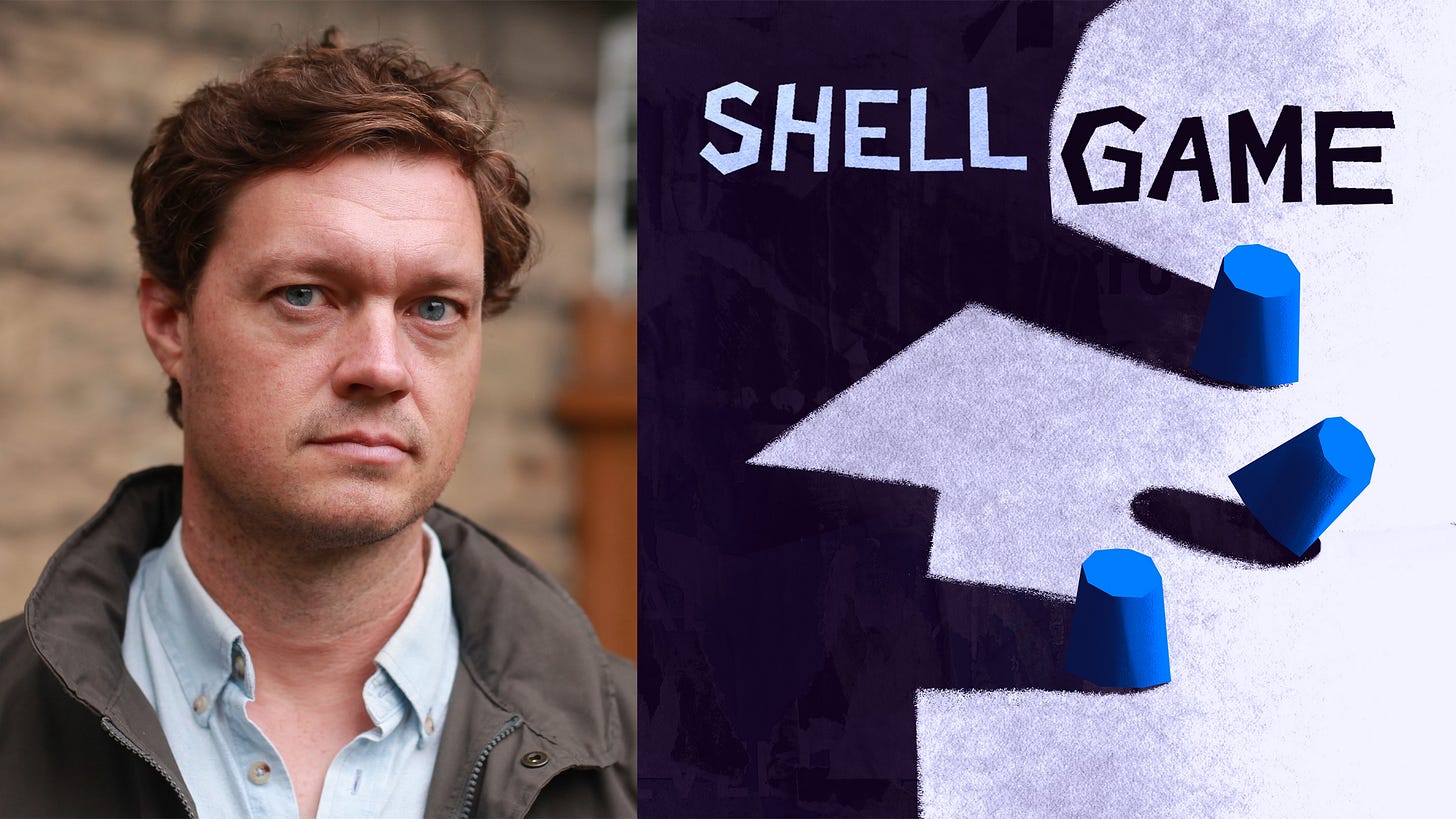Podcaster Michael Hobbes delights in challenging the status quo
The cohost of Maintenance Phase and If Books Could Kill explains why he hates the “Big Ideas” industry.
Armed with a sharp wit and an even sharper eye for research, Michael Hobbes is carving out a unique space in the podcast world. From his home base in Seattle, Hobbes, who has an insatiable curiosity, has made it his mission to challenge what we think we know about everything from fad diets to bestselling books.
His current projects, Maintenance Phase and If Books Could Kill, showcase his talent for unpacking complex topics with a mix of humor and scholarly rigor. On Maintenance Phase, he teams up with writer Aubrey Gordon to take on the often dubious world of wellness trends and diet culture. They strip away the marketing fluff to reveal the shaky science (assuming there is any science) beneath. With If Books Could Kill, Hobbes and lawyer Peter Shamshiri turn their critical eye to popular nonfiction books, questioning the bestsellers that have shaped public thinking.
Hobbes is not just out to bust myths; he wants to understand why we buy into them and what that says about us as a society. This approach, honed during his time as a cohost on the hit podcast You're Wrong About, has made Hobbes a go-to voice for anyone looking to question the status quo.
For this edition of Depth Perception, we traded emails with Hobbes to get the inside scoop on his myth-busting process. In answering our Leading Questions, Hobbes gives us a glimpse into the mind of a guy who's made skepticism both entertaining and essential. —Parker Molloy
Why did you become a journalist?
Serendipity! Growing up I wanted to become either a therapist or a writer — I like listening to people and learning stuff, but couldn’t figure out a career that allowed me to do both. Then, on my first day of community college, I randomly sat next to a guy who told me the student newspaper was hiring and paid $400 per month: Gold doubloons to a 16-year-old in 1998. I applied that afternoon and majored in journalism (and psychology) when I transferred to a four-year school.
After that, I moved to Denmark for grad school and got an internship at a human rights NGO in Copenhagen, which turned into a decade-long career in international development. It didn’t feel like that much of a transition since most of my research was basically just listening to people and learning stuff. Eventually I moved to Berlin for a job at a more political NGO where I got to do a lot less of the fulfilling stuff so I started writing essays on nights and weekends. Eventually HuffPost noticed and offered me a job.
What story of yours are you proudest of?
In 2016, I spent two weeks at my old high school investigating what happened to it after I left. It was a troubled school in the late 1990s, then it got a bunch of Gates funding and became a “good” school, then the funding dried up, and by 2016 it was troubled again.
It was the most rewarding journalistic experience I’ve ever had. First of all, spending a bunch of time with high schoolers, teachers, and administrators taught me more about the challenges of public education than the half dozen books I had already read about education reform. Second, it radicalized me against the “Big Ideas” industry: Ideas are only as good as their implementation.
What story of yours do you most regret?
The same story! I spent almost 18 months writing it, produced more than a dozen drafts and got rejected by every magazine in America before I finally placed it in Pacific Standard. But to be honest, I’m still not sure I ever quite made it work. The interaction between Big Ideas and implementation is something I’ve thought a lot about since, and I think I would write it differently if I had to do it again. Also, it’s a bummer that there were so many insights from the kids and the teachers that I didn’t get to include!
Listen up! Long Shadow wins a Murrow Award for Best Podcast
Long Lead is honored to announce that Long Shadow: Rise of the American Far Right has won an Edward R. Murrow Award for Best Podcast.
From the Ruby Ridge raid and the siege at Waco’s Branch Davidian compound, to the Oklahoma City bombing, to the Jan. 6 insurrection, this podcast examines a thread of history that’s vitally relevant to our current political climate.
In Long Shadow’s second season, Pulitzer-finalist historian and journalist Garrett Graff connects the dots between these and other seemingly disparate, violent events, to answer some of the most existential questions facing the U.S. today: How did America get the far right so wrong? What will it take now to get
Listen and subscribe at www.longshadowpodcast.com.
What’s the best journalistic career advice you ever received?
DO 👏 THE 👏 READING 👏!
I cannot tell you the number of times that I’ve been able to reach a unique insight simply from reading the primary documents about an issue. The one that always sticks in my mind is Terri Schiavo, this poor woman who became a political football in the early 2000s when a legal battle between her husband and parents became national news.
The heart of the issue was whether her husband Michael or her parents should be legally responsible for the decision to take her off of life support. Michael was constantly smeared in the press as a deadbeat who wanted to pull the plug so he could cavort off into the sunset with his new wife. Terri’s parents described her as being only mildly impaired and on the road to recovery. From reading about it as a teenager, I remembered the story as a complicated legal drama about the elusive definition of life and family, and was planning on making a meandering tone-poem of an episode about this arcane debate within bioethics.
But then I read the court documents and, oops, it turned out Terri’s parents were lying and her husband was telling the truth. Michael had diligently safeguarded her health for years, even quitting his job and getting a nursing degree so he could take better care of her. There hadn’t been electrical signals in her brain for years, and no one in a persistent vegetative state had ever recovered. The legal battle produced something like 20 judicial decisions, all of which found in favor of Michael. It wasn’t a “tricky debate” as soon as I actually engaged with the evidence.
What is the worst journalistic career advice you’ve ever received?
This isn’t advice so much as an orientation, but when I published my first few investigative features, I started getting interest from the TED Talks set. Conference invites, speaker inquiries, cable news appearances, that sort of thing. C-suite types would email me asking to meet for coffee. There’s a real tractor beam that starts pulling at you once people think you’re saying Important Things, and at first I said yes to everything because I wanted to be a journalist and that’s what journalists do, they become conference speakers and TV appearers.
It didn’t take me long to sour on it. No one on those TV appearances actually listens to what you say or asks follow-ups. The trick is to have a little canned answer that you deliver. And those C-suite people didn’t want to teach me anything or talk about ideas; they wanted me to promote their companies.
Will the real Evan Ratliff speak up?
In last week’s Depth Perception, Mark Yarm interviewed both Evan Ratliff, the journalist behind the inventive new podcast Shell Game, and his digital doppelgänger, an AI voice clone he developed to experiment with the technology ( and the world).
We mixed up their responses to our “Leading Questions” interview to see if readers could distinguish the real Evan from the fake one. Here are real Evan’s answers: 1: A, 2: B, 3: B, 4: A, 5: A, 6: B, 7: B, 8: A, 9: B, 10: A
How did you do? Share your score on Threads by tagging @longlead and letting us know!
What makes you think journalism is doomed?
I think journalism as an act isn’t doomed and never will be — people want to know what’s going on in the world around them.
America’s journalistic institutions, however, are like 97% doomed. Local papers can’t reach the scale required to make an ad-supported or subscriber-based model work — there’s a finite number of people who are interested in news about Seattle or Portland or Kansas City. Even at the national level, we’re winnowing down to just the New York Times and the Washington Post, both of which are still regularly laying off staff.
We’re filling the gap with Substack and other crowdfunded media, some of which is excellent. But that doesn’t feel like a replacement for the kind of journalism we’re losing because, again, the scale just isn’t there.
What makes you feel hopeful for the future of journalism?
I know I just talked shit about Substack, but I actually think the model of crowdfunded journalism is super interesting. Obviously the incentives aren’t perfect and Substack specifically sucks as a company, but I find it heartening that journalists can find an audience in niches where they didn’t exist before.
I’m not the only person out there who likes to listen to people and learn stuff, and I’m extremely heartened by how the industry has opened up to a much broader range of voices over the last 20 years. My own career would have been impossible without the democratizing effect of the internet, and that’s true of the three people I’ve co-hosted podcasts with. They’re all just random people who started posting smart and interesting stuff on the internet and eventually got noticed, and now they say smart and interesting things to people full time. That’s really exciting and would have been impossible at almost any other time in human history.
So that’s what gives me hope: The fact that the internet still has the kinds of places where you can listen to people and learn stuff.
Further reading and and listening from Michael Hobbes:
Maintenance Phase (podcast)
If Books Could Kill (podcast)
“The Afterlife of Big Ideas in Education Reform” (Pacific Standard, Aug. 15, 2017)
“Terri Schiavo” (You’re Wrong About, March 5, 2019)
“What Is The Internet Doing To Boomers’ Brains?” (HuffPost, Oct. 29, 2020)









